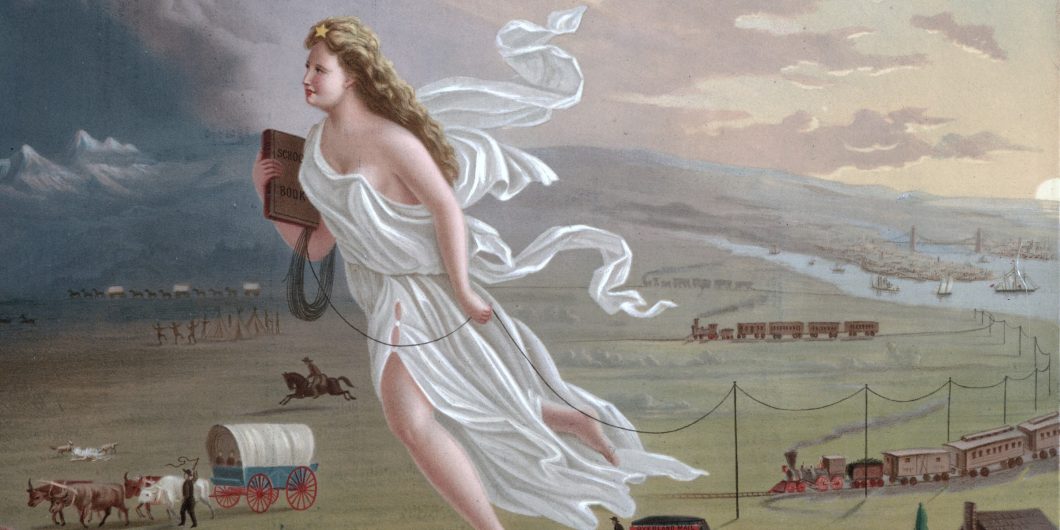The Permanence of Progressive Conservatism
George Hawley’s review of my book, Progressive Conservatism, reveals an imperfect understanding of the Republican Party, conservatism, and America. He certainly has a very different understanding of the Trump movement than I do, for he sees it the same way the Washington Post does, as a group of “tribal and nasty” voters who are uninterested in political policies. And yet there were sharp policy differences between Trump and the other GOP candidates in 2016. He was speaking to issues that they had forgotten, and he was progressive while they were right-wing ideologues.
I was there, after all. Through speeches I helped prepare and discussions with senior campaign leaders, I assisted in crafting policies on intergenerational mobility and the American Dream, immigration, national health, and corruption—policies which a majority of the voters support and which propelled Trump to victory. Trump had staked out the sweet spot in American politics, socially conservative and economically left of center, the upper-left progressive conservative quadrant.
I do agree with Hawley that Trump failed to preside over a progressive conservative administration. He was hampered by a right-wing Congress for his first two years and subjected to the mendacious Russian collusion hysteria for the next two years. He had promised a sea change in GOP politics but had no idea how to staff it. Perhaps that was just as well, since he liked to surround himself with creeps and sycophants. The corporate tax cuts in 2017 sparked an economic recovery, but the needed progressive conservative reforms were postponed.
Is it quite over, then? Trump lost in 2020 and would lose again if he ran in 2024, which is why he won’t run. Many of the MAGA candidates he supported will deservedly lose this November. But the permanent issues remain, the policies that enjoy the support of most Americans according to pollsters and that historically have defined the Republican Party.
To understand the GOP, and indeed America, it is helpful to see America in terms of West versus East, as opposed to North versus South or Bernie Sanders versus Milton Friedman. The party was born not in 1964 but much earlier on the frontier. Its greatest interpreter was Frederick Jackson Turner, and its grand themes were the American Dream, republican virtue, and nationalism. The West represented second chances and social and economic mobility, while the East was hierarchical and immobile. The West was virtuous and the East corrupt. Westerners were nationalists and Easterners cosmopolitans with a marked cultural cringe.
If one fails to understand the way in which the frontier shaped the GOP and America, there is much in our history that will be puzzling—how Wyoming became the Equality State, and how initiatives and referenda came from out of the West. The Seventeenth Amendment will be a mystery. One won’t understand Lincoln’s egalitarianism or his domestic policies, how Theodore Roosevelt was a progressive, and how Eisenhower made his peace with the New Deal. For the right-winger, America is the Unknown Country.
Hawley turns his nose up at concerns about inequality and immobility. In doing so, he gives the issues away to the left, when it is they who made us unequal and immobile. The progressive conservative would reform the abysmal education system, the broken immigration policies, and the regulatory excesses that entrench a liberal elite. He would also emulate the liberal policies that make Denmark and Canada far more egalitarian and mobile than we are, by capping college tuition and offering a national catastrophic health plan. These are progressive conservative policies that voters would greatly welcome, and which would dish the Democrats just as Benjamin Disraeli would have done.
You can’t be a nationalist and indifferent to the welfare of the poorest Americans. If you are, you’re simply another right-winger.
Hawley ridicules me for claiming that public corruption was an issue for the Founders and scorns the idea of republican virtue. “Do most historians consider public corruption the leading cause of the American Revolution,” he asks. Ahem, George Hawley meet Bernard Bailyn, Gordon Wood and J.G.A. Pocock. As for the Trump voters, I seem to recall chants of “Drain the Swamp” at his rallies.
True, few of those voters had read Cicero. No matter. All that republican virtue means is a disinterested desire to promote the common good, and it doesn’t take a genius to realize that there’s little enough of this in Washington. Since the game is tilted towards a liberal elite, this should have been a natural issue for conservatives, but the right-winger stupidly gives it away to the Democrats.
Finally, the westerner was a nationalist, and Trump tells us he is one too. And not just a nationalist, but an American nationalist. The distinction is important, because what makes us American is fidelity to the liberal principles of the Founders and the idea that America has a special mission to promote liberty, as promised by the Declaration of Independence, guaranteed by the Bill of Rights, and informed by a history in which those rights were defended and enlarged from Bunker Hill to Selma, Alabama. That’s our creed, and it’s Trump’s departures from liberalism that make him seem alien to us.
The anti-liberal can’t be a nationalist, for American nationalism is liberal nationalism. That’s what Lincoln thought. In a July 10, 1858 speech, he noted that some of us weren’t descended from the people who had fought in the Revolution. But that didn’t matter. They were still entitled to call themselves Americans, because of the “electric cord” of the Declaration “that links the hearts of Patriotic and liberty-loving men together.” If you say you’re a nationalist but don’t care for Lincoln, I have a Pétainist question for you: Êtes-vous plus Américain que lui?
Nationalism also requires a sense of solidarity with one’s fellow Americans. That is why, like Eisenhower, the Trump supporter could make his peace with the welfare state—and why Trumpism was anathema to the right-winger. It’s also why the National Conservatives, who want to make America great while ignoring nationalism’s leftward gravitational force, seem vulgar and inauthentic in their nationalism. You can’t be a nationalist and indifferent to the welfare of the poorest Americans. If you are, you’re simply another right-winger. You’re like the East Ender who used to feel he had part ownership in all the pink bits on the map.
To clarify, I don’t argue that Trump was a “quintessential progressive conservative,” as Hawley claims. Instead, I make the case that what set Trump apart from everyone else in 2016 were policies that represented a return to an older progressive conservative party. What happened afterwards was a failed administration and the scandal of January 6, 2021. Nevertheless, he has shown the future for the Republican Party, one with the principles of Abraham Lincoln, the vitality of Theodore Roosevelt, and the smiling imperturbability of Dwight Eisenhower.


